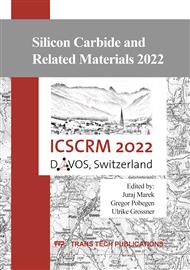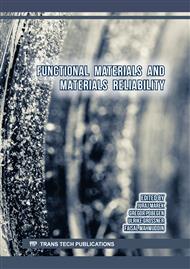p.145
p.151
p.157
p.165
p.171
p.179
p.187
p.193
p.201
Humidity Robustness of 3.3kV SiC-MOSFETs for Traction Applications - Compared to Standard Silicon IGBTs in Identical Packages
Abstract:
Silicon carbide (SiC) MOSFETs are gaining more and more market share in typical silicon (Si) IGBT applications such as traction or renewable energies. Especially in reliability sensitive traction applications, medium voltage IGBT-modules (3.3 kV-6.5 kV) are widely used and introducing SiC-MOSFETs to such industries is the next self-evident step already on the way. While their superior electrical performance has been generally accepted already (e.g. [1]), SiC-modules have not yet established a track record of high reliability in this voltage class. For this study, 3.3kV SiC-MOSFET-switches were compared to standard Si-IGBTs regarding their humidity robustness under high voltage bias. Both chip types had been assembled in the same traction rated packages to exclude this influence. The Si-IGBTs resembled the well-known industry standard performance, while the SiC-MOSFETs show no degradation within the reported test time of 2000 h. Given the fact [2], that the latest Si-IGBT generation offers a much better humidity performance as well, the standardised HV-H³TRB is no longer sufficient to provoke failures within a reasonable testing time. On the one hand, this suggests that humidity driven failures will not be an issue under field conditions anymore. On the other hand, even harsher tests are required to investigate differences in humidity performance.
Info:
Periodical:
Pages:
171-177
DOI:
Citation:
Online since:
June 2023
Authors:
Keywords:
Permissions:
Share:
Citation:



